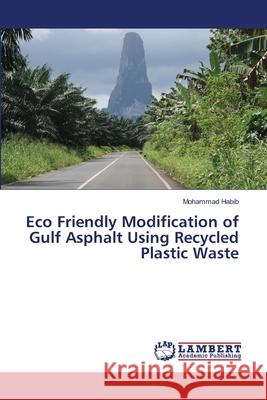Eco Friendly Modification of Gulf Asphalt Using Recycled Plastic Waste » książka
Eco Friendly Modification of Gulf Asphalt Using Recycled Plastic Waste
ISBN-13: 9786138348207 / Angielski / Miękka / 2018 / 140 str.
Utilization of Polymer-based product increased greatly in modern society and consequently these inert and hydrophobic materials become litter in the environment after their useful life and it causes adverse environmental impact by polluting agricultural land and fresh water. Although those plastic wastes are unsuitable for landfill disposal, some of the most developed societies dispose considerable amount of plastic wastes to landfill. Road agencies are spending money to procure asphalt modifiers such as polymers, hydrocarbons, chemicals. Laboratory experiments of this study prove that recycled low-density polyethylene (rLDPE), high density polyethylene (rHDPE) & polypropylene (rPP) added with little amount of commercial Styrene-Butadiene-Styrene (cSBS) widen the temperature susceptible range of local asphalt from 64oC to 70 oC, 76 oC and even up to 82oC. The dynamic shear rheometer (DSR) result demonstrate that rHDPE, rLDPE and rPP modified bitumen significantly improve the rutting resistance at high temperature. To achieve the targeted upper performance grade (UPG) of base asphalt of 76oC and 82oC twelve most promising blends were identified.











